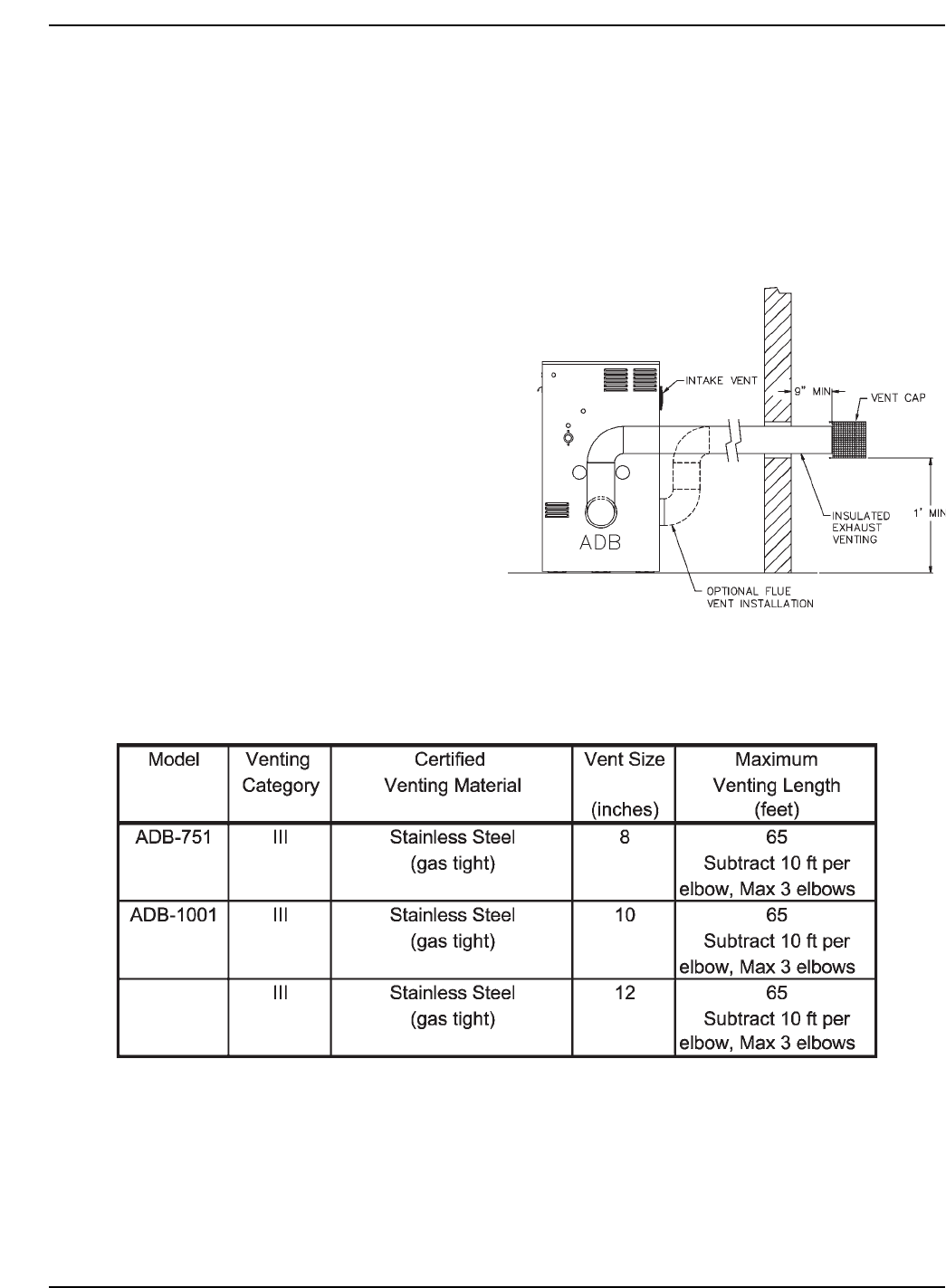INSTALLATION AND OPERATING INSTRUCTIONS Advanced Design Boiler 751, 1001, 1501

30
appliance not connected to the common vent sys-
tem. Turn on any exhaust fans, such as range
hoods and bathroom exhausts, so they will oper-
ate at maximum speed. Do not operate summer
exhaust fan. Close fireplace dampers.
d) Place in operation the appliances being inspected.
Follow the manufacturers instructions for lighting
each appliance. Adjust thermostat so appliance
will operate continuously.
e) Test for natural draft (negative pressure) 12"
above the outlet elbow after 5 minutes of main
burner operation. Use the flame of a match or can-
dle, or smoke from a cigarette, cigar or pipe, toilet
paper trick.
f) After it has been determined that each appliance
remaining connected to the common venting sys-
tem properly vents when tested as outlined above,
return doors, windows, exhaust fans, fireplace
dampers and other gas burning appliances to their
previous conditions of use.
g) Any improper operation of the common venting
system should be corrected so that the installation
conforms with the latest edition of the National
Fuel Gas Code, ANSI Z223.1, in Canada, the lat-
est edition of CSA B149 Installation Code for Gas
Burning Appliances and Equipment.
When re-sizing any portion of the common venting
system, the common venting system should be re-
sized to approach the minimum size as
determined using the appropriate tables in
Appendix G in the latest edition of the National
Fuel Gas Code, ANSI Z223.1, in Canada,
Appendix B of the latest edition of the Installation
Code for Gas Burning Appliances and Equipment.
Fig. 22: Horizontal Thru-Wall Venting without Add-on
Condensing Heat Exchanger (Category III)
Table L: Horizontal Thru-wall Venting without Add-on
Condensing Heat Exchanger (Category III)
ADB-1501










